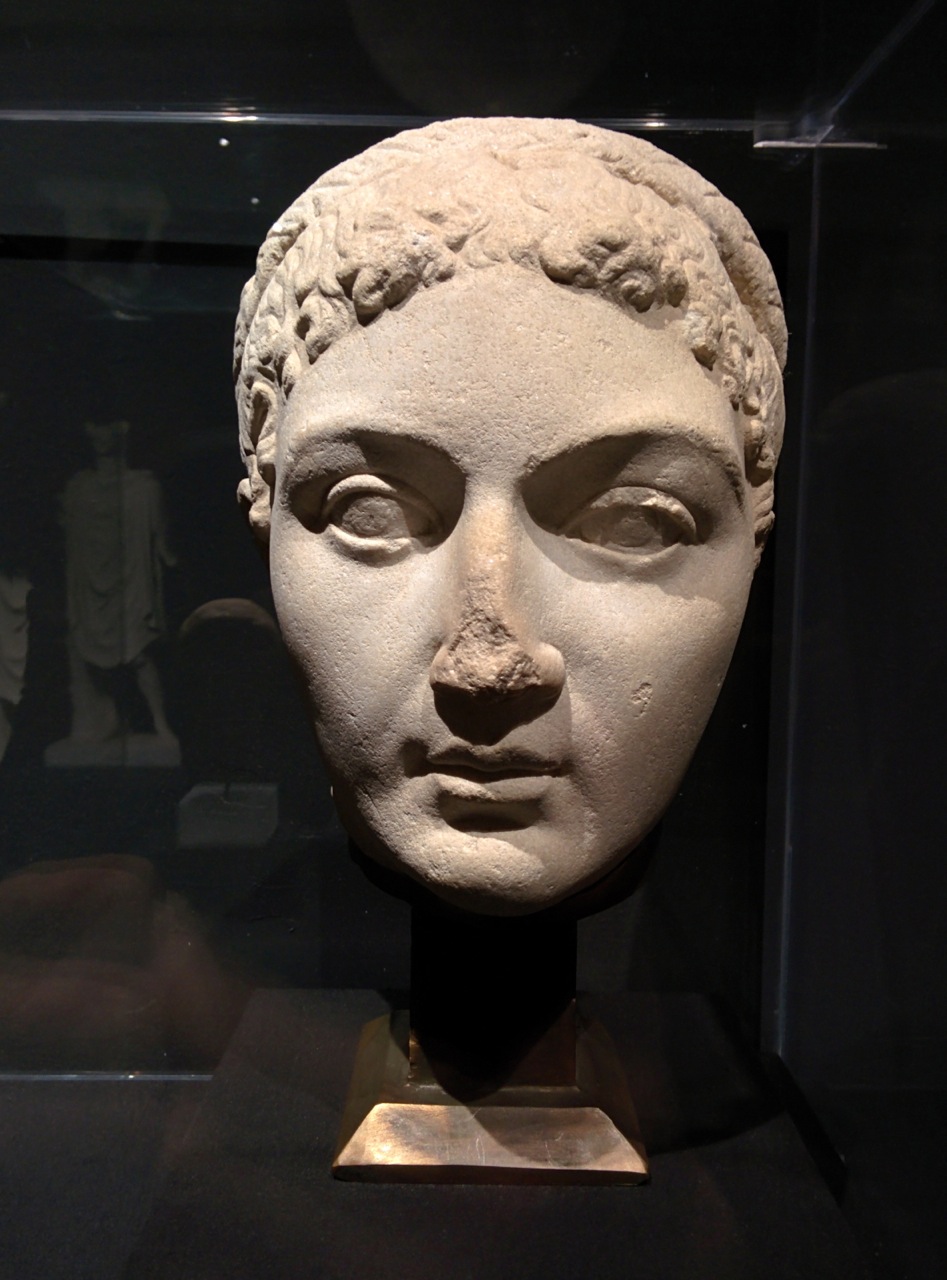by KarenEssex | Sep 30, 2017 | BLOG: Women, History, Sex & Power, books, history, kleopatra, pharaoh, power, sex, travels, women
 Of all the women distorted by history and myth, Kleopatra is the most vivid example. Far from the sexual and treacherous archetype of feminine evil who lives in the popular imagination, Kleopatra was one of the ancient world’s most brilliant and powerful rulers. She survived blood-curdling family rivalries for the throne, single-handedly ruled a rich nation with an eye for turning a profit, and kept Egypt independent while all its neighboring countries had been annexed to the Roman Empire. She spoke nine or ten languages, patronized art, drama, athletics, sciences and other forms of scholarship, and had the loyalty of her subjects — rare for the members of her dynasty. ... Read more.
Of all the women distorted by history and myth, Kleopatra is the most vivid example. Far from the sexual and treacherous archetype of feminine evil who lives in the popular imagination, Kleopatra was one of the ancient world’s most brilliant and powerful rulers. She survived blood-curdling family rivalries for the throne, single-handedly ruled a rich nation with an eye for turning a profit, and kept Egypt independent while all its neighboring countries had been annexed to the Roman Empire. She spoke nine or ten languages, patronized art, drama, athletics, sciences and other forms of scholarship, and had the loyalty of her subjects — rare for the members of her dynasty. ... Read more.

by KarenEssex | Jul 18, 2015 | BLOG: Women, History, Sex & Power, books, history, kleopatra, pharaoh, travels
Photographs from an exhibition of Cleopatra in Rome.
by KarenEssex | Jun 24, 2012 | books, dracula in love, history, kleopatra, power, sex, women
 I really enjoyed doing this sixty minute radio interview with Jon Hansen. Few interviewers come so well-prepared to discuss a book on so many different levels with an author. Hope you enjoy.
I really enjoyed doing this sixty minute radio interview with Jon Hansen. Few interviewers come so well-prepared to discuss a book on so many different levels with an author. Hope you enjoy.
Dracula in Love radio interview with Jon Hansen
by KarenEssex | Feb 12, 2011 | history, kleopatra
I have been having conversations with Egyptian friends and scholars, readers who are revisiting my novel Kleopatra, and book clubs that are reading it for the first time. It’s just amazing how history is repeating itself two thousand years later. “Egyptians have never been passive,” says an Egyptian friend. “We have attracted despots and dictators throughout our history but we have always rebelled against them.”
In Kleopatra, the unruly populace stages multiple demonstrations against King Ptolemy XII, Kleopatra’s father, who has overtaxed them in order to help the Romans finance their wars of conquest. The king had reason to be afraid; the Egyptians had been so aggravated with his predecessor that they slit his throat. The riots escalated, and Ptolemy XII was forced to go to Rome to demand support for his continuance on the throne. In my book – and in the minds of some scholars, owing to epigraphic evidence- the young Kleopatra accompanied her father to Rome, forever changing her attitude toward governance. ... Read more.
 Of all the women distorted by history and myth, Kleopatra is the most vivid example. Far from the sexual and treacherous archetype of feminine evil who lives in the popular imagination, Kleopatra was one of the ancient world’s most brilliant and powerful rulers. She survived blood-curdling family rivalries for the throne, single-handedly ruled a rich nation with an eye for turning a profit, and kept Egypt independent while all its neighboring countries had been annexed to the Roman Empire. She spoke nine or ten languages, patronized art, drama, athletics, sciences and other forms of scholarship, and had the loyalty of her subjects — rare for the members of her dynasty.
Of all the women distorted by history and myth, Kleopatra is the most vivid example. Far from the sexual and treacherous archetype of feminine evil who lives in the popular imagination, Kleopatra was one of the ancient world’s most brilliant and powerful rulers. She survived blood-curdling family rivalries for the throne, single-handedly ruled a rich nation with an eye for turning a profit, and kept Egypt independent while all its neighboring countries had been annexed to the Roman Empire. She spoke nine or ten languages, patronized art, drama, athletics, sciences and other forms of scholarship, and had the loyalty of her subjects — rare for the members of her dynasty.


